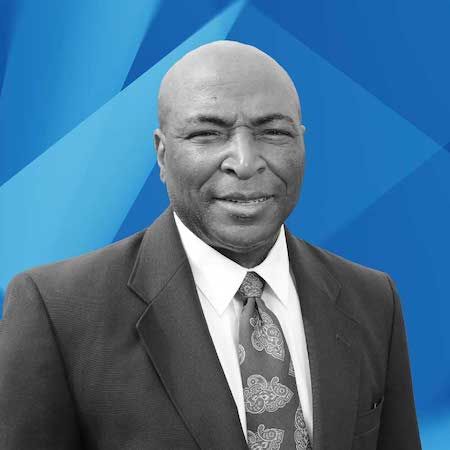
|
Q & A with Mathew Wayne Whitest, MDPresident, Wayne Pharmaceuticals, Inc. |
What is your mission at Wayne Pharmaceuticals, and how is it unique among pharma companies? Why is it so important to have Black-owned pharmaceutical companies at the table?
Wayne Pharmaceuticals is an African American-owned pharmaceutical company that is focused on bringing quality healthcare products, under our DR. WAYNE brand, to consumers. These products are in the form of over-the-counter (OTC) and prescription medications. We are committed to developing products that will extend the lives of our community members and, at the same time, improve their quality of life.
As an African American company, I feel a greater sense of responsibility for Wayne Pharmaceuticals, to bring more diversity to the biomedical and pharmaceutical research, development, and manufacturing industry in America. We have as a long-term goal to develop a first-in-the-nation African American-owned pharmaceutical, research, and manufacturing park. The objective of such a place is to research and develop new healthcare products, inclusive of vaccines, which will improve our quality of life while partnering with many historically Black colleges and universities (HBCUs) throughout the USA, to recruit more people from college for careers in these industries. This park will play an important role in integrating the African American community into the pharmaceutical supply chain in America, as it will create thousands of jobs and will play a very important role in diversifying the pharmaceutical industry.
The DR. WAYNE brand allows consumers to ensure that they are buying quality products but are also re-investing in their community by creating jobs and educating our youth for important roles in pharmaceutical and biomedical sciences. It is important to have African American-owned pharmaceutical companies at the table as it allows input in how resources are allocated and what projects are funded to address disease issues that affect communities of color.
What are some of the unique challenges facing Cordele, Georgia, and the rural South more generally? As a physician, what are you most worried about for your patients?
Wayne Pharmaceuticals is located in the rural community of Cordele, Georgia. It is one of the poorest cities in Georgia. It is located in Crisp County, Georgia, which is ranked 153 out of 159 counties in the overall health of its citizens.
These low rankings are because of the high morbidity (disease) and mortality (premature death) rates of its citizens. The life span of an African American male in Crisp County is less than 63 years of age and 68 years of age for an African American female. Heart disease is a leading cause of death among Cordele citizens. There is a great need for early screening and disease prevention efforts aimed at diabetes, hypertension, and cancer. As a physician, it is discouraging to see so many people die from preventable diseases.
You personally have experienced the burdens of health inequities in Cordele. Can you talk a little bit about the difficulties of the past few years and how that has motivated you? What led you to return to Cordele?
I'm a native of Cordele, and I returned to Cordele in 2014 and founded my company Wayne Pharmaceuticals. We also developed our nonprofit entity, the MD Whitest Medical Institute, to work on local initiatives to address issues that have and continue to shorten the lives of so many Cordeleans. We acquired a former school and began to offer exercise and blood pressure monitoring programs. This program was a success, as participants experienced lowered blood pressure and weight loss by participating in the four-day-a-week, hour-long morning exercise program. The 2020 COVID pandemic curtailed this program.
This program is a template for what could work if proper funding were invested in communities like Cordele. As a native, the return to Cordele has been heartbreaking, as many friends and neighbors have been impacted by the high mortality rate.
In 2023, I lost three family members to illnesses such as cancer and heart disease. In March of 2023, I had a brother die of heart disease. In August of 2023, my oldest brother died of prostate cancer; he also suffered from underlying heart disease. Additionally, on October 2, 2023, my youngest sister died from an intracranial bleed due to metastatic lung cancer in her brain. The cancer, as well as her underlying diabetes, weakened the blood vessels in her brain, and she developed a brain bleed while undergoing treatment for her cancer. Her underlying health conditions sabotaged her cancer treatment and robbed her of her life.
This was a traumatic and heartbreaking experience for our family. This has personalized the trauma that many of the citizens of Cordele experience on a regular basis. The African American community in rural communities like Cordele tends to have less access to resources that will address issues of disease prevention. My goal is to change the narrative and these terrible outcomes.
What led you to reach out to the Milken Institute with death certificate data from Cordele? How has that project evolved?
I was invited to participate in a pharmaceutical supply chain panel discussion. It was through that panel that I met many fantastic panel experts, such as Dr. Sacks, Dr. Cargill, and many others who welcomed me and my experiences to the panel. I learned of much of the work that these panel members had conducted on health inequities. I then shared a project I had been working on with Dr. Cargill: gathering death certificate data from local funeral homes in Cordele to really measure the toll that early death is taking on our community. It has been informative and fascinating to learn of the great work of the Milken Institute.
